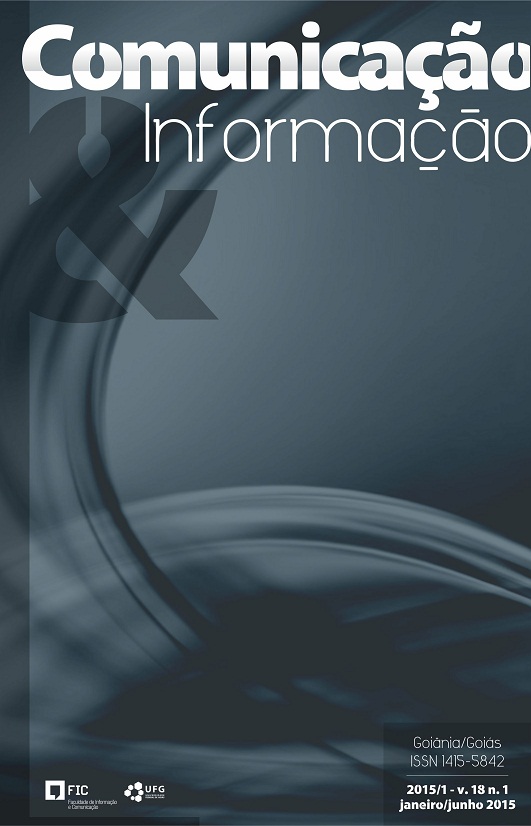The symbolic value of sustainability and ways of its appropriation by the companies: the example of the brands Prius, Natura and Patagonia
DOI:
https://doi.org/10.5216/34514Keywords:
Sustainability. Consumption. Prius. Natura. Patogonia.Abstract
Sustainability is an increasingly important issue in our society and organizations. The positive symbolism that it awakens generates interest from companies with many different profiles that incorporates sustainability in their speeches and actions with different approaches. The purpose of this article is to discuss the construction of the symbolism of sustainability and its use as a product claim for consumer goods companies. For this, we used a theoretical discussion and examples of appropriation of the concept by the marks Toyota Prius, Natura and Patogonia, which have different perspectives for the use of the concept of sustainability. As a value still evolving, we conclude that there are two paradigms that need to be broken for the adoption of sustainability: the symbolic paradigm, in which the reduction of consumption starts to be seen as symbolically positive, and the economic paradigm, in which the reduction of volumes sold by the companies needs to be a possibility.
Downloads
References
ABRAMOVAY, R. A apropriação da sustentabilidade pelas grandes marcas globais. Folha de São Paulo, 18 de jul. 2013. Disponível em: <http://www1.folha.uol.com.br/empreendedorsocial/colunas/2013/07/1312685-a-apropriacao-da-sustentabilidade-pelas-grandes-marcas-globais.shtml>
BAUDRILLARD, J. A Sociedade do Consumo. São Paulo: Edições 70, 1978.
BELK, R. Possessions and the Extended Self. Journal of Consumer Research, v. 15, n. 2, p. 139-168, 1988.
BUCCI, E. A fabricação de valor na superindústria do imaginário. Revista Communicare, São Paulo, v. 2, n. 2, p. 56- 72, 2002.
CASTELLS, M. Comunicación y poder. Madri: Alianza Editorial, 2009.
CASTELLS, M. A sociedade em rede: a era da informação: economia, sociedade e cultura. 9. ed. São Paulo: Paz e Terra, 2006. v. 1.
CELEBRITY CARS BLOG. How Many Stars Own A Prius? [S.l.], [2011?] Disponível em: <http://www.celebritycarsblog.com/2011/01/how-many-celebrities-drive-a-prius/>. Acesso em: 8 mar. 2015.
CONSELHO EMPRESARIAL BRASILEIRO PARA O DESENVOLVIMENTO SUSTENTÁVEL (CEBDS). Linha do Tempo 1950 a 2008. Disponível em: <http://www.cebds.org.br/>: Acesso em: 24 out. 2014.
GREEN CAR REPORTS. Toyota Prius: a brief history in time. Disponível em: <http://money.cnn.com/2006/02/17/news/companies/mostadmired_fortune_toyota/>. Acesso em: 10 fev. 2015.
HOLBROOK, M. B.; HIRSCHMAN E. C. The experiential aspects of consumption: consumer fantasies, feelings, and fun. Journal of Consumer Research, v. 9, n. 2. p. 132-140, sep. 1982.
INSTITUTO ETHOS. Princípios e compromissos. Disponível em: <http://www3.ethos.org.br/>. Acesso em: 24 out. 2014
IPPOLITO, M.; MATHIOS, A. D. Information, advertising and health choices: a study of teh cereal market. Rand Journal of Economics, Santa Monica, CA, v. 21, n.3, p. 459-480, 1990.
IPPOLITO, M.; MATHIOS, A. D. Health claims in food marketing: evidence on
knowledge and behavior in the cereal market. Journal of Public Policy & Marketing, Chicago, IL, v. 10, p. 15-32, 1991.
KUNSCH, M. M. K. (Org.). A comunicação na gestão da sustentabilidade das organizações. São Caetano do Sul: Difusão Editora, 2009.
LEFF, E. Epistemologia ambiental. 4. ed. São Paulo: Cortez Editora, 2007.
LEVY, S. J. Interpreting Consumer mythology: a structural approach to consumer
behavior. Journal of Marketing, Chicago, v. 45, p. 49-61. 1981.
LIPOVETSKY, G. A felicidade paradoxal: ensaio sobre a sociedade de hiperconsumo. São Paulo, Cia das Letras, 2006.
MARKETING HALL OF FAME. 2015 Inductees to the Marketing Hall of Fame. Disponível em: <http://www.marketinghalloffame.org/2015/03/03/2015-inductees-to-the-marketing-hall-of-fame/>. Acesso em: 8 mar. 2015.
MARTÍN-BARBERO, J. Dos meios às mediações. Rio de Janeiro: UFRJ, 1997.
PATAGONIA. Disponível em: <http://www.patagonia.com/us/environmentalism>. Acesso em: 8 mar. 2015.
RICHINS, M. L. Measuring emotions in the consumption experience. Journal of
Consumer Research, Oxford, v. 24, n. 2, p. 127-146. 1997.
SALECL, R. Sobre a felicidade: ansiedade e consumo na era do hipercapitalismo. São Paulo: Alameda, 2005.
SORON, D. Sustainability, self-identity and the sociology of consumption. Sustainable Development, v. 18, p. 172-18, 2010.
SENNET, R. The fall of the public man on the social psychology of capitalism.
New York: Vintage Books, 1978.
SZMIGIN, I.; CARRIGAN, M.; MCEACHERN, G. The conscious consumer: taking a flexible approach to ethical behavior. International Journal of Consumer Studies, v. 33, n. 2, p. 224-231, 2009.
TAYLOS, A. Toyota: the birth of the prius. CNN MONEY, [S.l.]. Disponível em: <http://money.cnn.com/2006/02/17/news/companies/mostadmired_fortune_toyota/>. Acesso em: 10 fev. 2015.
VEIGA, E.. Sustentabilidade: a legitimação de um novo valor. São Paulo: SENAC, 2010.
ZIZEK, S. O hedonismo envergonhado. Folha de São Paulo, Caderno Mais, 13 out. 2003.
Published
How to Cite
Issue
Section
License
Os autores dos trabalhos publicados na revista Comunicação e Informação retêm os direitos autorais sem restrições e concedem à revista o direito de primeira publicação, com o trabalho simultâneo licenciado sob a Licença Creative Commons Atribuição-NãoComercial que permite o compartilhamento do trabalho para fins não comerciais com reconhecimento da autoria e o privilégio de publicação primeiramente por esta revista. Caso o texto venha a ser publicado posteriormente em outro veículo, solicita-se aos autores informar que o mesmo foi originalmente publicado como artigo na revista Perspectiva, bem como citar as referências bibliográficas completas dessa publicação.
Os direitos autorais dos artigos pertencem aos autores e o conteúdo dos artigos assinados é de responsabilidade exclusiva dos autores.
A revista se reserva o direito de efetuar, nos originais, alterações de ordem normativa, ortográfica e gramatical, com o intuito de manter o padrão culto da língua, respeitando, porém, o estilo dos autores.
A revista também se reserva o direito de traduzir o artigo, no todo ou em parte, para o inglês ou para o português, dependendo do idioma em que o artigo tenha sido escrito originalmente.



